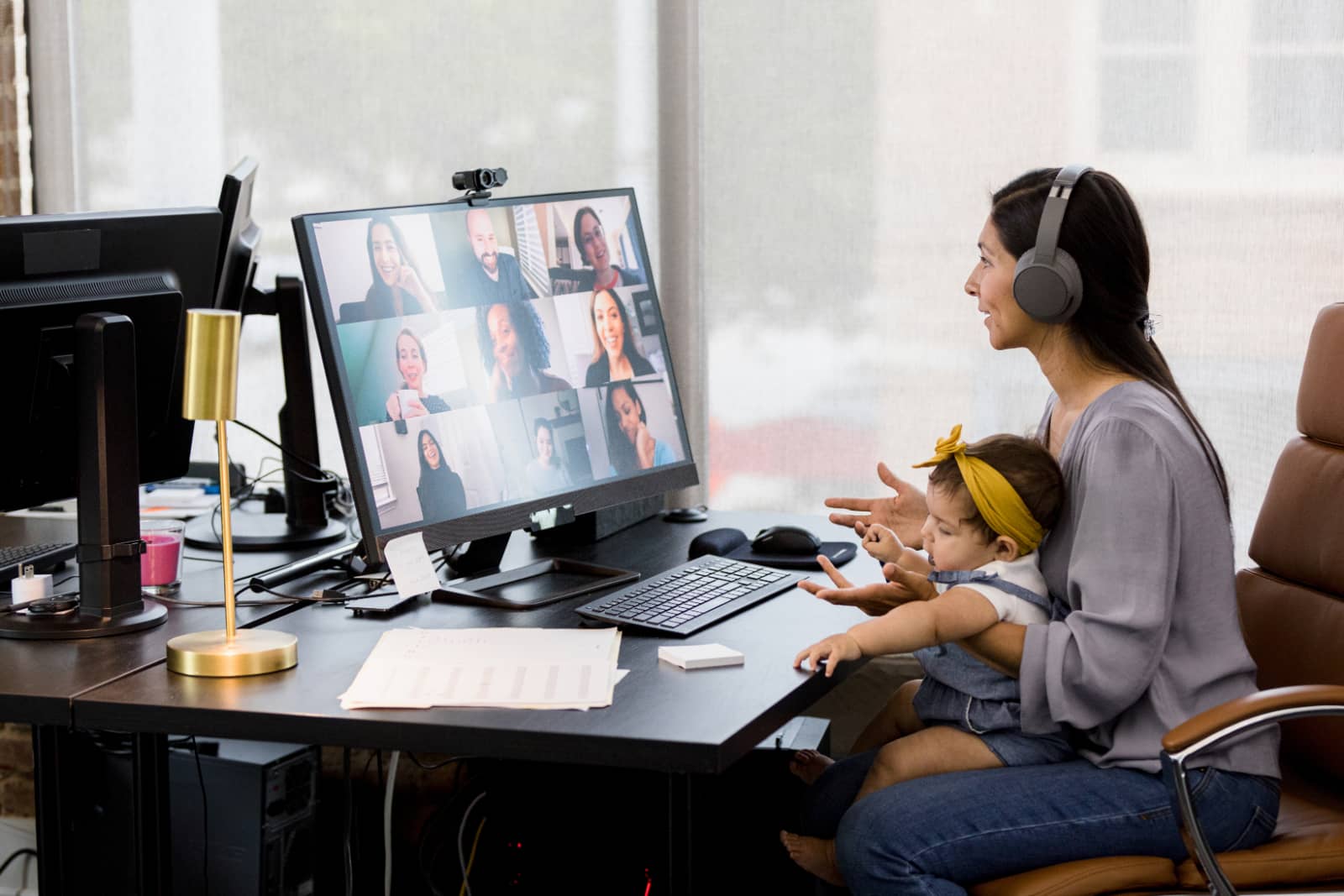You may want to eliminate that burden of your 9-5 job , trade it for something that actually helps you financially, and live happily making money from your hobby. The gig economy continues to explode, and, as a result, setting up shop as a freelancer has never been easier.
You may be one of the many people who find themselves considering the freelance career with the thought of how to set up a freelance business.
However, to most, especially if they have not been freelancers before, it seems like a bit of a challenge. Hence, we put this step-by-step guide together on how to start a freelance business from scratch.
Table of contents
- What is a Freelance Business?
- Why Establish a Freelance Business?
- How to Set Up a Freelance Business
- Business Ideas You Can Do As a Freelancer
- How Much Does it Cost to Start a Freelance Business?
- Tips for Managing Your Freelance Business for Profitability ?
- Frequently Asked Questions
- Conclusion
- References
- Recommendations
What is a Freelance Business?

A freelance business is mostly a skills-based, service-oriented business which means that a client can get a large variety of competencies and skills. The freelance typically offers the following services:
- A specific skill set and expertise within a certain domain
- Project-based work and deliverables
- Flexibility in working arrangements, often contract or temporary
Also Read – 10 Free Courses To Advance Your Career In 2025
Why Establish a Freelance Business?
The freelancing industry is growing significantly and is expected to continue to grow at a compound annual growth rate of 15.3% through 2027.
This presents a lucrative opportunity for starting a freelance business, as demand rises for specialized skills across various industries and businesses seek out freelance professionals for specific projects.
How to Set Up a Freelance Business
If you’re ready to begin your freelance career, start strong by following these guides on how to set up a freelance business:
Know Your Goals

You will not get anywhere without knowing where you’re headed and why you’re going there.
You, therefore, must know why you want to become a freelancer and what you want to achieve by becoming one. The following questions will help in bringing out your goals:
- Are you becoming a freelancer to make an extra coin or to make it your main job?
- Is it the freelancing-lifestyle benefits that call you, or is it just the freedom of being your boss?
- Is freelancing a stepping stone to achieve a different goal?
- Or are you pulled into freelancing because your peers are there and doing well?
A well-defined freelance goal ensures that one stays at the top of their game. Having an ultimate goal is something to which top entrepreneurs agree when there is a successful business.
Get a Profitable Niche

Freelancing is a career that can be done from anywhere, hence being popular all over the world. Freelance work can range from anything to a content writer, content marketer, graphic designer, or professional consultant.
Focusing on a niche helps you develop a strong portfolio and a client base that generates a decent income. Depending on your niche, there are many freelancing platforms where freelancers can find work and connect with clients.
Therefore, you must find a profitable niche and create a portfolio.
Read also: Why More People Are Ditching 9-to-5 Jobs for Freelancing
Identify Your Target Audience (TA)

As your freelance career starts to get off the ground, be open to different clients; over time, you’ll know which type of client works best for you. These clients that you will be comfortable working with are your target audience, which you should follow so that you may give your best.
With value-acquiring clients, reliable only for the services with you, you give organic growth opportunities to your businesses. These would be the questions that allow one to identify who will be your T.A, including:
- Which business goes well with what I offer/ sell?
- Who could afford my prices, neither too high and neither too cheap, to achieve the objectives?
- Find the influencers in your industry, and learn from them: demographics, age, location, and interests. Try networking or connecting with them at a personal level.
With this information, you’ll be in a position to send the right message to the targeted audience, connect with them, and offer immediate value.
Check out: Top 10 Leading Business Opportunities In West Africa
Source Specific Freelance Equipment

Purchase any equipment necessary to get your freelance business off the ground. Depending on the services offered, this could be a computer and software or other communications devices. Specific examples of this may include:
- Computer and relevant software/tools specific to your skill set
- Project management tools
- Communication tools, including but not limited to email and video conferencing
- Marketing materials: portfolio, business cards, website
Read also: Marketing Automation Tools for Small Business
Register Your Freelance Business

Register your freelance business in compliance with local regulations and see whether you’re required to get any licenses and permits that allow you to practice in the local economy. Consider acquiring professionally liability insurance to provide coverage against costly lawsuits.
Market Your Services

Building a freelance business requires accepting marketing-and all its self-promotion. Thankfully, options abound for promoting your freelance business. Here are five ways freelancers are selling their services.
- Networking with potential clients
- Participate in community discussions
- Leverage freelancing platforms
- Pay to advertise your business
- Find and send cold pitches
Read Also – Best Cloud Providers for Fintech Companies and Professionals
Business Ideas You Can Do As a Freelancer

Anything you do independently to make money is a freelance business, so the neighborhood kid selling lemonade is technically a freelancer. But some positions are more manageable than others – and more scalable. Here are a few excellent choices for freelance work:
Web designer
These professionals design websites either through coding or using no-code development platforms. You need an eye for color and composition, design chops, adaptation skills to accommodate varying client requests, and knowledge of basic search engine optimization practices that let you create competitive, engaging sites.
Photographer
If you are handy with a camera, you could start a photography business freelancing for a number of clients or selling your images to stock photo sites like Getty Images or Shutterstock.
Video editor
Video is one of the most effective and popular forms of marketing. Hence, video editors are always in demand. All you need to get started is a powerful graphics card, some basic editing knowledge, and an eye for storytelling and flow.
Graphic Designer
These workers usually design graphics for projects using programs like Photoshop and Adobe Illustrator for things like logo creation and background images to billboards and other physical mail-in advertisements.
Copywriter
The copywriters will create text for the virtual and physical promotional materials; these are SEO-focused articles, UX content, social media posts, and email campaigns.
Data Analyst
These freelancers organize and analyze data for clients in every industry. The data analyzed can be anything: click-throughs on a website, finances, or quarterly key performance indicators set out by the company.
SEO Consultant
Optimizing content for better ranking in Google’s search results is a complex work that needs smart strategy and improvements quite often. Not all marketing teams have SEO experts at their command.
Artist
More functionally, though, you can sell your crafts – paintings, jewelry, kids’ wooden toys – through such online markets as Etsy, Amazon Handmade, and Society6, at farmers’ markets, or at fairs.
Read: Top Lenders Offering Unsecured Business Loans in 2025
How Much Does it Cost to Start a Freelance Business?
The good thing is that you can start freelancing with just about minimal investment. In fact, if you have a computer and internet access already, then you could start anytime.
On the other hand, it is not cheap if you are required to invest in improved equipment or build a professional set-up. A decent enough laptop may range between $500 to $1,000 and a high-speed internet connection anywhere between $50 to $100 per month.
As your business grows, you could consider extra costs like software applications, marketing, and opening a business bank account.
In this regard, software applications for business use, like Microsoft Office or Grammarly, could run as high as $70 to $140 per year. Marketing-website design or advertising-may cost anywhere from $500 to several thousand dollars.
Overall, the cost to start a freelance business can be as low as $0 if you use what you already have, or it can range up to tens of thousands of dollars depending on your goals and needs.
Read Also – How To Get Best Online Part-Time Jobs Today
Tips for Managing Your Freelance Business for Profitability?

Once you have learned how to set up a freelance business and actually get it off the ground, you will need to know how to correctly run and manage it so that it is profitable. Here are some general tips on how to achieve that.
- Research your industry and have a deep understanding of the freelance industry, including market competition, target demographics, and financial requirements. Consider an opportunity to work with established freelancers or agencies to gain experience.
- Develop a robust marketing strategy from the very beginning to proactively promote your freelance business. Create a professional website to showcase your portfolio and attract clients —be inspired by these freelance website examples.
- Provide excellent customer service right from the beginning to the end of the project. Satisfied customers will ensure repeat business and referrals.
Read: Interview Tips: How to Stand Out and Get Promoted
Frequently Asked Questions
You will have to have a certain skill in either writing, graphic designing, web development, or even social media management. Look into your strong and weak points to identify where you fit in.
First of all, market demand, competition, and your skills will help you choose a profitable niche. Think about what you can offer, with which industries you can work, and how you differ from others.
Sell yourself on freelance platforms like Upwork, Freelancer, or Fiverr. Sell yourself through social networks, networking events, and referrals to potential clients. Develop a professional website and portfolio of services.
Do your research about the market rate for your services. Keep in mind your experience, skill set, and cost. Set a competitive rate that reflects value for the clients.
Set boundaries, create a routine, and self-care comes first. Set your workspace up, and don’t overbook yourself with customers. Your body and head need time; take time or breaks to unplug from them.
Conclusion
Setting up a freelance business does really take lots of time, but is surely worth all it takes.
Simply follow the steps in this content and you will be well on your way to a successful, sustainable freelance career.
Before you go, you should read: The Importance of Mentorship in Career Growths
References
- doubleyourfreelancing.com – The Ultimate Guide To Starting A Freelancing Business (2024 Edition)
- betterproposals.io – How to Start Your Own Freelance Business in 8 Simple Steps






